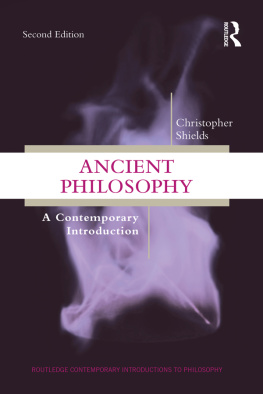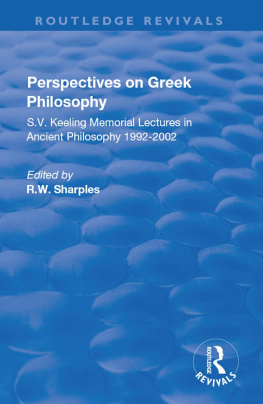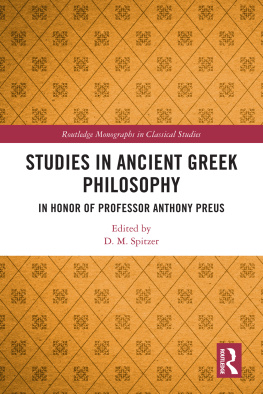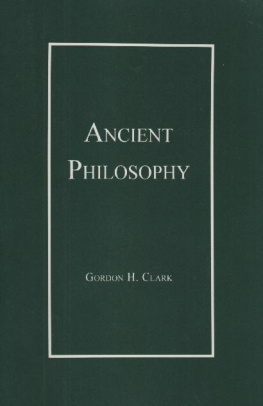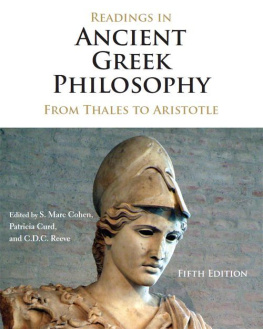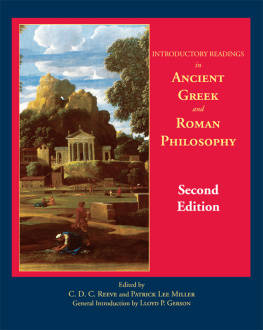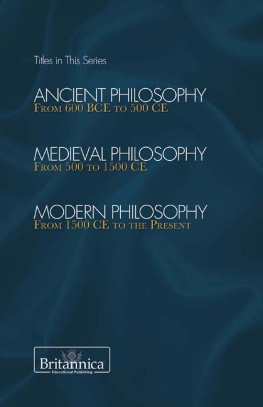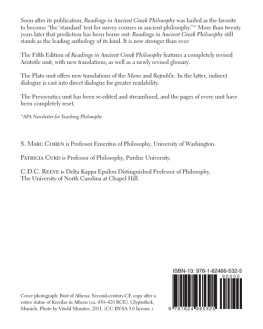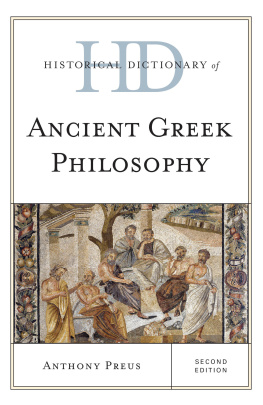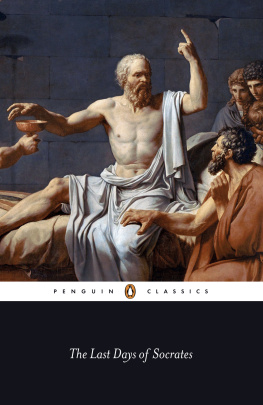Bookmarks
Pagelist
Guide

ROUTLEDGE CONTEMPORARY INTRODUCTIONS TO PHILOSOPHY
Series editor:
Paul K. Moser
Loyola University of Chicago
This innovative, well-structured series is for students who have already done an introductory course in philosophy. Each book introduces a core general subject in contemporary philosophy and offers students an accessible but substantial transition from introductory to higher-level college work in that subject. The series is accessible to non-specialists and each book clearly motivates and expounds the problems and positions introduced. An orientating chapter briefly introduces its topic and reminds readers of any crucial material they need to have retained from a typical introductory course. Considerable attention is given to explaining the central philosophical problems of a subject and the main competing solutions and arguments for those solutions. The primary aim is to educate students in the main problems, positions and arguments of contemporary philosophy rather than to convince students of a single position.
Recently published volumes
Business Ethics
Jeffrey Moriarty
Philosophy of Social Science
2nd Edition
Mark Risjord
Philosophy of Psychiatry
Sam Wilkinson
Philosophy of Emotion
Christine Tappolet
Ancient Philosophy
2nd Edition
Christopher Shields
For a full list of published Routledge Contemporary Introductions to Philosophy, please visit www.routledge.com/Routledge-Contemporary-Introductions-to-Philosophy/book-series/SE0111
Cover image: Shutterstock.com
Second edition published 2023
by Routledge
605 Third Avenue, New York, NY 10158
and by Routledge
4 Park Square, Milton Park, Abingdon, Oxon, OX14 4RN
Routledge is an imprint of the Taylor & Francis Group, an informa business
2023 Taylor & Francis
The right of Christopher Shields to be identified as author of this work has been asserted in accordance with sections 77 and 78 of the Copyright, Designs and Patents Act 1988.
All rights reserved. No part of this book may be reprinted or reproduced or utilised in any form or by any electronic, mechanical, or other means, now known or hereafter invented, including photocopying and recording, or in any information storage or retrieval system, without permission in writing from the publishers.
Trademark notice: Product or corporate names may be trademarks or registered trademarks and are used only for identification and explanation without intent to infringe.
First edition published by Routledge 2012
ISBN: 978-0-367-45834-8 (hbk)
ISBN: 978-0-367-45835-5 (pbk)
ISBN: 978-1-003-02565-8 (ebk)
DOI: 10.4324/9781003025658
Typeset in Times New Roman
by Apex CoVantage, LLC
Contents
Ancient Philosophy
In Ancient Philosophy (2012), Christopher Shields expanded on the coverage of Socrates, Plato, and Aristotle in his earlier book, Classical Philosophy (2003), to include the philosophy of the Hellenistic era. In this new edition (2023), Shields reaches even further to include material on Neoplatonism and on Augustine and Proclus, capturingfrom Thales of Miletus to the end of the sixth century CEall of what might be called ancient philosophy. It traces the important connections between the periods and individuals of more than 1,200 years of philosophys history without losing sight of the novelties and dynamics unique to each. The coverage of the Presocratics, Sophists, Plato, and Stoicism has also been expanded so as to highlight Platos responses to the Sophistic movement in the development of his theory of Forms.
And finally, a valuable companion volume, with Shieldss focused translations of the important sources referred to in Ancient Philosophy, Second Edition, will soon be published, obviating the need for a massive anthology of discordant voices.
Ancient Philosophy, Second Edition, retains its helpful structure: each philosophical position receives (1) a brief introduction, (2) a sympathetic review of its principal motivations and primary supporting arguments, and (3) a short assessment, inviting readers to evaluate its plausibility. The result is a book that brings the ancient arguments to life, making the introduction truly contemporary. It continues to serve as both a first stop and a well-visited resource for any student of the subject.
Key updates in the second edition
- Extends the range of coverage well into the sixth century CE by offering a new chapter on Neoplatonism and early Christian philosophy, featuring discussions of Proclus and Augustine.
- Explains the conflicts between Plato and the Sophists by highlighting their approaches to rhetoric as an instrument of persuasion, offering a helpful explanation of two senses of argument.
- Includes new coverage of Platos argument from the Simplicity of the Soul, Argument from Affinity, and Argument against Rhetoric.
- Includes coverage of Aristotles political naturalism.
- May be used with a soon-to-be-published companion volume of primary source material, all of it translated by Christopher Shields specifically for the reader of this Second Edition.
Christopher Shields is UC Distinguished Professor and Henry B. Allison Chair in the History of Philosophy at UC San Diego. His publications include The Blackwell Guide to Ancient Philosophy (ed., 2002) and The Oxford Handbook of Aristotle (ed., 2012).
Preface to the second edition
This second edition offers expansions in two directions, first by augmenting the periods and figures already covered, and then also by moving forward in time to cover Late Antiquity into the dawn of Christian Philosophy.
First, in the periods already assayed, this edition offers broader and deeper coverage of the Presocratic philosophers and the Sophistic movement, thus providing greater context for the Platonic and Aristotelian reactions to these earlier thinkers; enhanced treatment of Platos approach to the immortality of the soul; a discussion of Platos Gorgias, a work in which he considers Sophistic contentions regarding the value of rhetoric and its proper place in intellectual inquiry; and a treatment of Aristotles political naturalism, intended to augment the presentation of Aristotles investigations into the character of human flourishing and our best means for achieving it.
Second, moving into a new era, this edition offers a concise introduction to late-antique philosophy, which we may conventionally date from the mid-third to the mid-seventh centuries AD. This period has been a lively area of professional research over the last several decades and is, of course, vast in time and scope. As a first foray into this territory, this introduction selects two representative figures: Proclus, who offers a kind of epitome of one core area of Neoplatonic philosophy, and Augustine, who attempts throughout his career to offer a philosophy adequate to the demands of his Christian theism.
Spanning several centuries, Neoplatonism comprises a range of figures, many of whom attempt to defend and expand Platos philosophy, often in ways surprising to a modern temperament, above all by working to harmonize his views with the those of Aristotle, even though, as the earlier sections of this text show, Plato and Aristotle appear sharply at variance with one another across a range of topics. In its effort to harmonize the views of these earlier figures, Neoplatonism is, to some extent, backward-looking, but it does not treat all figures of earlier periods as if they were on equal footing: its first impulse is to defend the philosophy of Plato. This holds true of the representative figure we discuss, Proclus, a pagan who aims to preserve and defend the teachings of Plato as he understands them. Even so, he serves as a kind of a bridge into the Christian philosophy which followed him, because not too very long after his death, his

